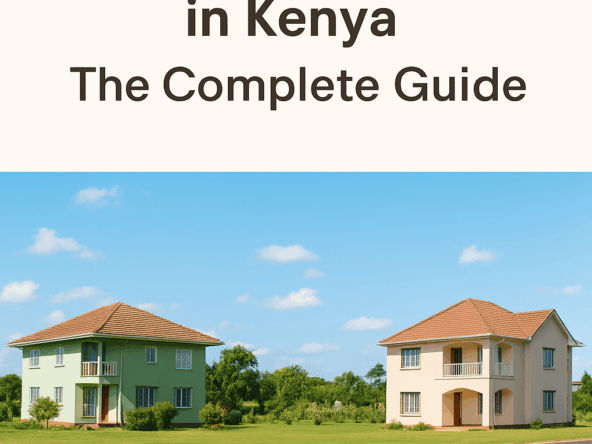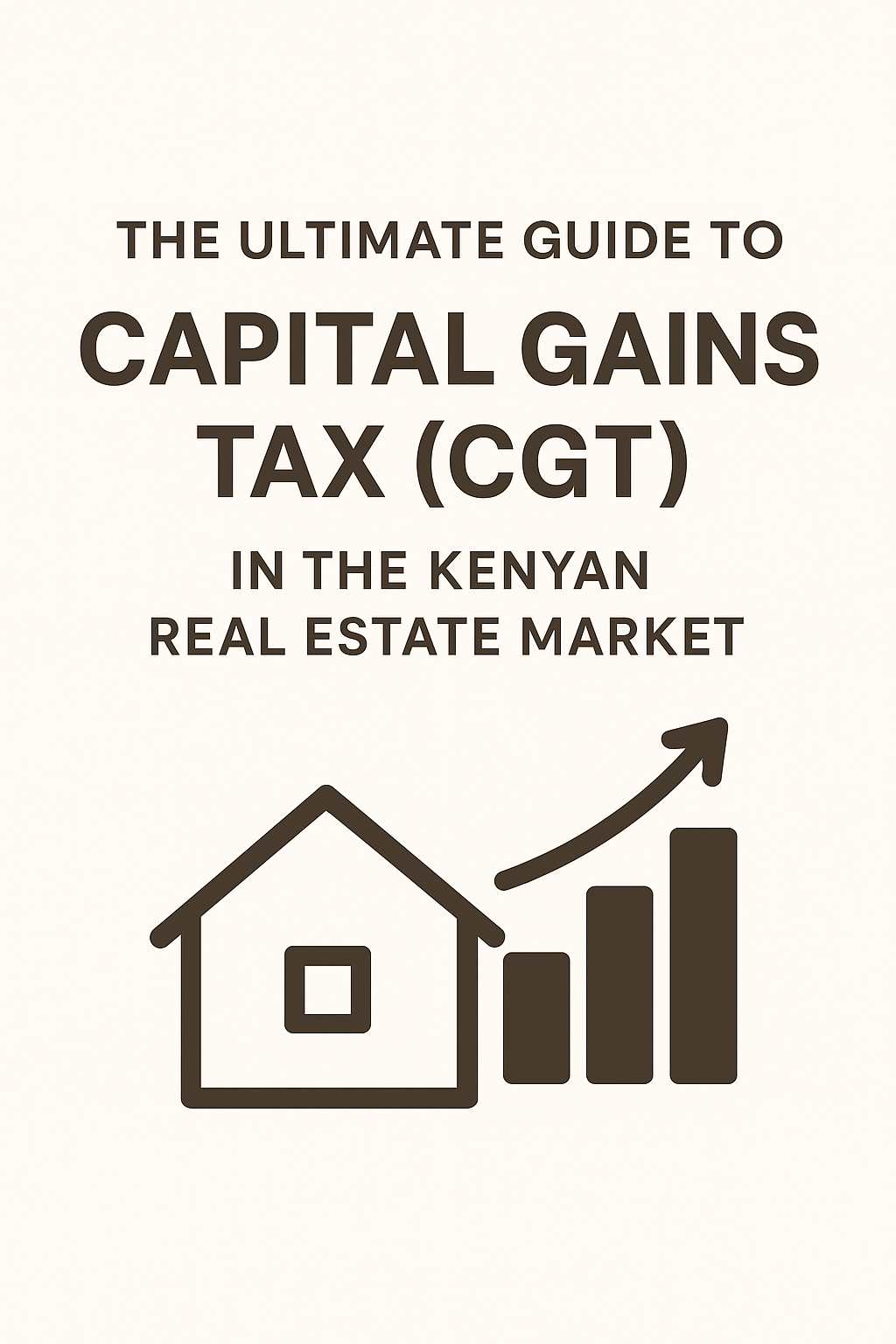Now is The Right Time for Non-Africans to Buy Land in Africa: A Comprehensive Guide
Introduction
Africa, often known as the “cradle of civilization,” is a continent blessed with abundant natural resources, rich cultural heritage, and tremendous economic potential. Historically, land ownership in Africa has been complex, but recent shifts in legislation and robust economic growth have created unprecedented opportunities. Today, non-Africans—especially those of African descent looking to reconnect with their heritage—are discovering the advantages of investing in African land. This guide explains why now is the ideal time to invest, provides a detailed comparison of key countries, and highlights Kenya as a standout destination for investment.
Advantages of Owning Land in Africa
Mineral Richness
Africa’s geological bounty is well documented. Countries such as Ghana, Ethiopia, Uganda, Tanzania, and Kenya are home to significant deposits of gold, diamonds, oil, and rare earth minerals. Acquiring land in these areas offers potential direct returns from resource extraction or profitable leasing agreements with established mining operations. This dual opportunity for immediate and long-term returns makes the continent especially attractive to investors.
Favorable Climate
The continent’s diverse climates—from tropical rainforests to sun-drenched savannahs—create optimal conditions for agriculture, tourism, and even residential living. This diversity offers opportunities ranging from establishing large-scale farming ventures to developing vacation homes in regions celebrated for their outdoor lifestyles.
Safety from Global Pandemics
The COVID-19 pandemic underscored the importance of choosing locations with lower population densities and robust health infrastructure. Many African countries, having implemented proactive measures, managed to contain the virus effectively. Investing in land in these regions can provide a secure refuge from future global health crises.
Value Appreciation
At present, land across many parts of Africa remains undervalued compared to global standards. With rapid infrastructural development and rising foreign investment, these properties are poised for significant appreciation. Early investors stand to benefit from robust long-term growth as market values increase in line with overall economic progress.
Favorable Ownership Laws
Many African nations have recently reformed their land ownership policies to encourage foreign investment. In Kenya, for example, non-citizens can invest in land via streamlined leasehold agreements—a significant improvement over previous bureaucratic challenges.
Comparing Key African Countries
Each country on the continent offers unique opportunities and challenges. Here’s an in-depth look at some of the most promising markets:
Ghana
Opportunities:
- Economic Stability & Growth: Ghana’s stable political environment and robust economic performance attract both local and foreign investors.
- Enhanced Infrastructure: Significant investments in roads, ports, and telecommunications have improved investor confidence.
- Resource Wealth: With an abundance of gold, cocoa, and oil, Ghana provides diversified returns.
Challenges:
- Unregistered Lands & Disputed Boundaries: In rural areas, unregistered lands and indeterminate boundaries have led to disputes, leaving some first-time buyers embroiled in legal issues.
- Complex Acquisition Processes: The absence of a centralized land registry often results in informal transactions and conflicts over title clarity.
Ethiopia
Opportunities:
- Rapid Economic Expansion: Ethiopia’s growth in agriculture, manufacturing, and infrastructure has generated significant investment prospects.
- Extensive Arable Land: The country offers vast areas suitable for large-scale agribusiness.
Challenges:
- Land Grabs & Displacement: High-profile cases, such as the Karuturi Global Ltd. concession in Gambella, illustrate the risk of displacing local communities, thereby increasing social and ethical concerns for investors.
- Bureaucratic Hurdles: Lengthy approval processes and occasional corruption can delay projects and inflate costs.
Uganda
Opportunities:
- Low Land Prices: With relatively affordable land compared to other markets, Uganda is attractive for entry-level investors.
- Resource Endowment: Oil, gas, and mineral reserves add to the country’s investment allure.
Challenges:
- Complex Tenure Systems: The mix of customary, freehold, and leasehold arrangements can create confusion, leading to disputes over ownership rights.
- Infrastructure Shortfalls: Underdeveloped roads and utilities may force investors to incur additional development costs, impacting returns.
Tanzania
Opportunities:
- Tourism & Natural Beauty: Iconic attractions like Serengeti National Park and Mount Kilimanjaro bolster tourism-related investments.
- Mineral Wealth: Rich deposits of gold, diamonds, and tanzanite enhance the overall investment profile.
Challenges:
- Restricted Ownership: Tanzanian law reserves land ownership for citizens, forcing foreigners to secure derivative rights—a process that can be complex and sometimes deter investment.
- Regulatory Fluctuations: Shifts in land policies and investment regulations create an unpredictable environment for long-term planning.
Kenya
Opportunities:
Kenya combines many of the same advantages as its peers with an investor-friendly framework:
- Political and Economic Stability: A stable political environment coupled with clear legal frameworks creates a secure investment climate.
- Natural and Cultural Richness: Kenya’s renowned wildlife parks, pristine beaches, and cultural landmarks add significant lifestyle and tourism value.
- Competitive Land Prices: Despite robust growth, Kenya continues to offer relatively low property prices, presenting strong long-term appreciation potential.
- Modern Infrastructure: With world-class airports, seaports, and telecommunications, Kenya serves as a regional hub for trade and investment.
- A robust legal system The land ownership laws have been regularized and clarified making it easy for Non-Kenyans to own land and invest in real estate in Kenya.
- Expert Real Estate Services: Firms like Mkaazi Real Estate provide professional support, easing the transition for first-time investors.
Learning from Challenges: Negative Experiences in Other Markets
While the opportunities are significant, it is important to consider some of the challenges first-time buyers have encountered in other markets:
-
Ghana:
- Unregistered Lands & Disputed Boundaries: Many investors have faced legal challenges due to unclear property titles and ambiguous land boundaries, leading to prolonged disputes with local communities.
- Complex Acquisition Processes: Informal land transactions have occasionally resulted in financial losses and legal ambiguities.
-
Ethiopia:
- Land Grabs and Displacement: Cases like the Karuturi Global Ltd. concession have led to the displacement of local communities, heightening both ethical and social risks for investors.
- Bureaucratic Delays: Lengthy, corruption-prone approval processes can delay projects and increase costs.
-
Uganda:
- Complex Tenure Systems: The coexistence of customary, freehold, and leasehold arrangements can create disputes over ownership rights, particularly when customary claims are not clearly documented.
- Infrastructure Deficiencies: Underdeveloped roads and utilities often force investors to incur extra costs, diminishing overall returns.
-
Tanzania:
- Restricted Ownership: The legal framework requires foreigners to obtain derivative rights rather than outright ownership, which can complicate investment processes.
- Regulatory Uncertainty: Frequent policy changes in land regulations add a layer of unpredictability to long-term investments.
Why Kenya is a Prime Destination for Land Investment
Connectivity
Kenya’s position as East Africa’s transportation and trade hub is well supported by its modern airports, efficient seaports, and expanding road networks. This connectivity facilitates both regional trade and international travel, enhancing the overall appeal for investors and potential residents alike.
Peace and Stability
In a region where political instability can be a significant concern, Kenya stands out for its long-standing commitment to democratic governance and peace. This stable environment minimizes investment risks and contributes to sustainable economic growth.
Robust Legal Systems
Kenya’s well-established legal framework provides clear guidelines for land ownership and investment. Recent reforms have increased transparency and protected the rights of foreign investors, reducing bureaucratic red tape and legal ambiguities.
Warm and Welcoming Society
The Kenyan people are known for their hospitality and friendliness, making the country particularly attractive to foreign investors and those seeking a new home. The local culture fosters a sense of community and openness that can ease the transition for new residents.
Natural Beauty and Tourism Potential
Kenya’s natural attractions are world-renowned. From the sprawling savannahs of the Maasai Mara to the idyllic beaches along the Indian Ocean, the country offers unparalleled tourism and lifestyle opportunities that enhance both investment value and quality of life.
Culinary and Cultural Delights
Kenyan cuisine is a vibrant blend of African, Arab, and Indian influences, offering an enticing array of flavors and culinary traditions. Iconic dishes like nyama choma and ugali add to the cultural richness that makes Kenya an attractive destination for long-term investment and residency.
Affordable Investment with High Potential
Despite ongoing economic growth, Kenya continues to offer competitively priced land compared to global markets. This affordability, combined with the region’s growth prospects, means investors can secure high-potential assets at attractive entry points.
Professional Real Estate Services
Kenya’s mature real estate market is supported by a network of professional firms such as Mkaazi Real Estate and Hass Consult that provide market information that offer clarity in investments. These companies provide essential services, from legal due diligence to property management, ensuring that even first-time investors can navigate the market successfully.
How Kenya’s Legal Systems and Judiciary Support Foreign Land Ownership
1. Constitutional Provisions
2. Legal Framework
3. Judicial Precedents
4. Government Approvals
5. Restrictions with Exemptions
6. Clear Ownership Structures
-
Individual Ownership: Foreigners can own leasehold land in their personal name
-
Corporate Structures: Foreigners can establish Kenyan companies to hold land, though these companies must comply with local ownership requirements
-
Trusts: While trusts cannot bypass ownership restrictions, they can be used for legitimate estate planning purposes
7. Protection Against Improper Schemes
8. Dispute Resolution Mechanisms
9. Professional Regulation
Success Stories in Kenya
Amid the challenges faced in other markets, Kenya remains a beacon of opportunity. Mkaazi Real Estate has successfully guided numerous local and international investors through the complexities of Kenyan property acquisition. Their comprehensive services—ranging from securing leasehold agreements to legal documentation and market analysis—have enabled clients to achieve significant returns on their investments.
Hass Property Land Index 2024 Q4 Excerpt: Land Performance in Kenya vs. Global Asset Classes
According to the Hass Property Land Index 2024 Q4 report, Kenya’s land asset class has demonstrated remarkable performance over the past year. The index shows that Kenya’s land values increased by approximately 14.3% year-over-year, outpacing several other asset classes:
- Equities: Averaged an 8% increase in returns, highlighting the resilience of Kenya’s land investments amid global market volatility.
- Government Bonds: Delivered around a 5% yield, underscoring their lower return profile compared to land assets.
- Global Real Estate Markets: In many other emerging markets, real estate has appreciated by an average of 10%, making Kenya’s performance notably competitive.
This data reinforces the view that investing in Kenyan land offers not only stability but also superior potential returns when compared to more traditional investment vehicles in the global market.
Land as an Investment in Kenya Compared to Other Asset Classes
Performance Comparison
Land in Kenya
-
Nairobi Suburbs-18: A Ksh. 1 million investment in land in 2007 would have grown to KES 7.08 million by December 2024.
-
Nairobi Satellite-14: A Ksh. 1 million investment in land in 2007 would have grown to KES 12.66 million by December 2024.
Other Asset Classes
-
Property (The Hass Sales Composite Index, All Properties): Ksh. 1 million would have grown to KES 2.78 million.
-
Bonds: Ksh. 1 million would have grown to KES 4.45 million.
-
Savings: Ksh. 1 million would have grown to KES 1.65 million.
-
Equities: Ksh. 1 million would have grown to KES 0.36 million.
Index Performance
-
Nairobi Satellite-14 Index Value: 1266.0 (outperforming all other asset classes mentioned)
-
Nairobi Suburbs-18 Index Value: 707.7
-
Gold: 328.7
-
Live Cattle (CME): 199.2
-
Crude Oil: 80.8 (worst performing)
Year-on-Year Performance Comparison
Land in Kenya
-
Nairobi Suburbs-18: The investment grew from Ksh. 1 million to KES 7.08 million over 17 years. The compound annual growth rate (CAGR) is calculated as (7.08 / 1)^(1/17) – 1 ≈ 10.2% per year.
-
Nairobi Satellite-14: The investment grew from Ksh. 1 million to KES 12.66 million over 17 years. The CAGR is (12.66 / 1)^(1/17) – 1 ≈ 14.3% per year.
Other Asset Classes
-
Property (The Hass Sales Composite Index, All Properties): Grew from Ksh. 1 million to KES 2.78 million over 17 years. CAGR ≈ 5.3% per year.
-
Bonds: Grew from Ksh. 1 million to KES 4.45 million over 17 years. CAGR ≈ 8.1% per year.
-
Savings: Grew from Ksh. 1 million to KES 1.65 million over 17 years. CAGR ≈ 3.0% per year.
-
Equities: Grew from Ksh. 1 million to KES 0.36 million over 17 years. This represents a loss, with a CAGR of approximately -5.7% per year.
Conclusion
Africa presents a compelling case for land investment, particularly for non-Africans and those of African descent seeking to reconnect with their heritage. The continent offers significant advantages, from rich mineral resources and favorable climates to the potential for substantial value appreciation. While countries like Ghana, Ethiopia, Uganda, and Tanzania offer enticing opportunities, first-time buyers must also be aware of potential pitfalls such as unregistered lands, bureaucratic delays, and regulatory uncertainties.
Kenya, however, stands out as a premier destination. Its stable political climate, modern infrastructure, clear legal systems, and welcoming culture provide an optimal environment for secure and profitable investment. With professional support from firms like Mkaazi Real Estate and compelling data—such as the Hass Property Land Index 2024 Q4, which highlights Kenya’s impressive 12% year-over-year land appreciation compared to lower yields in global equities and bonds—investors are well-positioned to tap into the continent’s vibrant potential.
As Africa continues to evolve and attract global investment, now is the time to secure a stake in its future, leveraging both its economic promise and rich cultural heritage.
Contact us today for specialized consultancy service on how to invest in land in Kenya.





